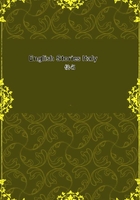
第39章
"You don't mean to say that she has told you all about it?" And he turned away from his work, and looked up into our faces with a comical expression, half of fun and half of despair.
"Every word of it," said I. "When you want a lady to travel with you never ask her to get up so early in winter."
"But, O'Brien, how could you be such an ass?" said Mackinnon. "As it has turned out, there is no very great harm done. You have insulted a respectable middle-aged woman, the mother of a family and the wife of a general officer, and there is an end of it--unless, indeed, the general officer should come out from England to call you to account."
"He is welcome," said O'Brien haughtily.
"No doubt, my dear fellow," said Mackinnon; "that would be a dignified and pleasant ending to the affair. But what I want to know is this: what would you have done if she had agreed to go?"
"He never calculated on the possibility of such a contingency," said I.
"By heavens, then, I thought she would like it," said he.
"And to oblige her you were content to sacrifice yourself," said Mackinnon.
"Well, that was just it. What the deuce is a fellow to do when a woman goes on in that way? She told me down there, upon the old race-course, you know, that matrimonial bonds were made for fools and slaves. What was I to suppose that she meant by that? But, to make all sure, I asked her what sort of a fellow the general was. 'Dear old man,' she said, clasping her hands together. 'He might, you know, have been my father.' 'I wish he were,' said I, 'because then you'd be free.' 'I am free,' said she, stamping on the ground, and looking up at me so much as to say that she cared for no one. 'Then,' said I, 'accept all that is left of the heart of Wenceslaus O'Brien,' and I threw myself before her in her path. 'Hand,' said I, 'I have none to give, but the blood which runs red through my veins is descended from a double line of kings.' I said that because she is always fond of riding a high horse. I had gotten close under the wall so that none of you should see me from the tower."
"And what answer did she make?" said Mackinnon.
"Why, she was pleased as Punch--gave me both her hands and declared that we would be friends for ever. It is my belief, Mackinnon, that that woman never heard anything of the kind before. The general, no doubt, did it by letter."
"And how was it that she changed her mind?"
"Why, I got up, put my arm round her waist, and told her that we would be off to Naples. I'm blessed if she didn't give me a knock in the ribs that nearly sent me backward. She took my breath away, so that I couldn't speak to her."
"And then----"
"Oh, there was nothing more. Of course I saw how it was. So she walked off one way and I the other. On the whole, I consider that I am well out of it."
"And so do I," said Mackinnon, very gravely. "But if you will allow me to give you my advice, I would suggest that it would be well to avoid such mistakes in future."
"Upon my word," said O'Brien, excusing himself, "I don't know what a man is to do under such circumstances. I give you my honour that I did it all to oblige her." We then decided that Mackinnon should convey to the injured lady the humble apology of her late admirer. It was settled that no detailed excuses should be made. It should be left to her to consider whether the deed which had been done might have been occasioned by wine or by the folly of a moment, or by her own indiscreet enthusiasm. No one but the two were present when the message was given, and therefore we were obliged to trust to Mackinnon's accuracy for an account of it. She stood on very high ground indeed, he said, at first refusing to hear anything that he had to say on the matter. The foolish young man, she declared, was below her anger and below her contempt.
"He is not the first Irishman that has been made indiscreet by beauty," said Mackinnon.
"A truce to that," she replied, waving her hand with an air of assumed majesty. "The incident, contemptible as it is, has been unpleasant to me. It will necessitate my withdrawal from Rome."
"Oh no, Mrs. Talboys; that will be making too much of him."
"The greatest hero that lives," she answered, "may have his house made uninhabitable by a very small insect." Mackinnon swore that those were her own words. Consequently a sobriquet was attached to O'Brien of which he by no means approved, and from that day we always called Mrs. Talboys "the hero." Mackinnon prevailed at last with her, and she did not leave Rome. She was even induced to send a message to O'Brien conveying her forgiveness. They shook hands together with great eclat in Mrs. Mackinnon's drawing-room; but I do not suppose that she ever again offered to him sympathy on the score of his matrimonial troubles.